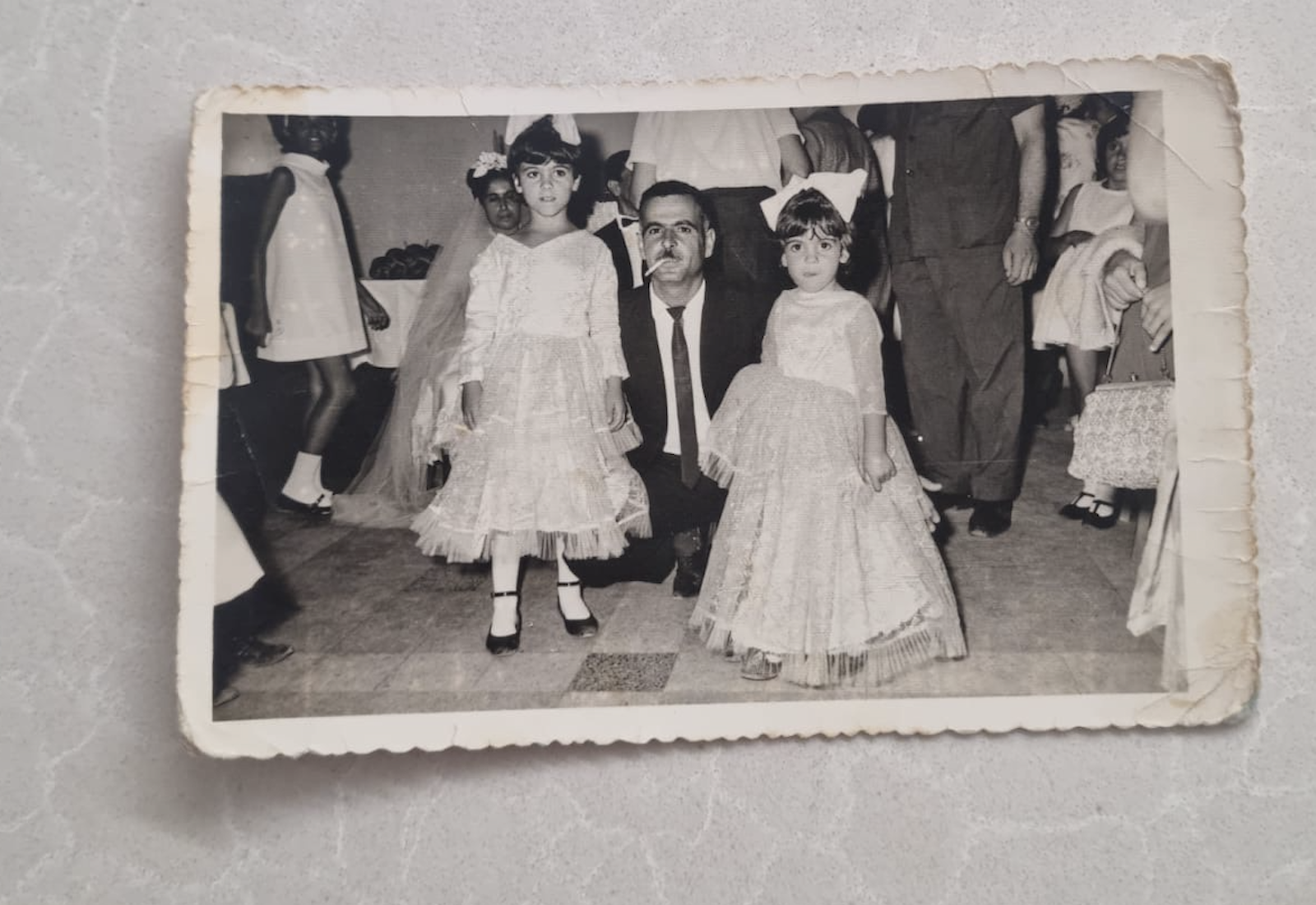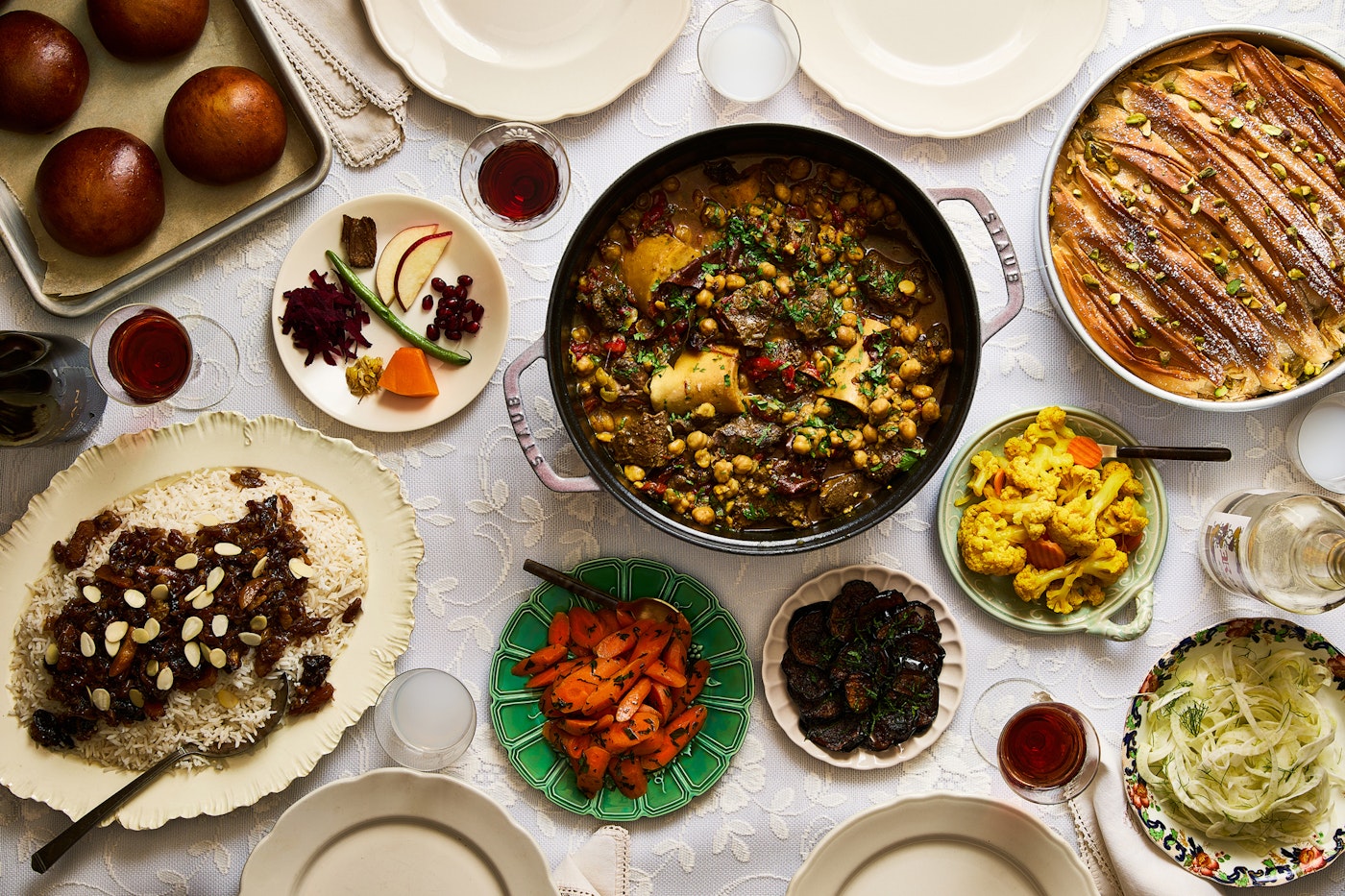Shared by Niv Turjeman


In Niv Turjeman’s family, the actions we take on Rosh Hashanah, dictate the year ahead. “If I open my house, my house will be open for the whole year,” he says. His mother Dolly would always wake Niv and his brothers up early on the holiday arguing that if one sleeps in on Rosh Hashanah, they will sleep through the year. Fitting, there’s no fighting allowed at the table on the holiday, lest it mean a year of fighting will follow.
The dishes Dolly makes for the family’s Moroccan feast are tinged with sweetness for a sweet year. Challah is stuffed with deeply caramelized onions, flaky chicken pastilla filling is laced with cinnamon and studded with raisins, and rice is topped with tanzia, a mixture of onions, nuts, and dried fruit. Red dishes, which might evoke blood or a bloody year, are left off the menu and the tomato-based sauce for the fish course that’s served during the rest of the year is replaced with a golden hued turmeric one that’s reserved for the holiday.
Before the meal starts, there are blessings to be said over foods like dates, squash, leeks, and a pomegranate from his grandparents’ tree, each of which has a symbolic meaning. During the ritual, sometimes known as a Rosh Hashanah Seder, the foods receive unique blessings, which serve as wishes for good things in the year ahead. A head of a fish, for instance, nods to a wish that we will be a “head” (leader) and not a “tail” (follower or straggler) in the coming year.
Since Niv’s family is religiously observant, relatives would sleep over at their home in Ashdod, on Israel’s coast, so they didn’t have to drive on the holiday. Mattresses covered the floor and as a child, Niv always knew he would have to surrender his room to one of his uncles. He would bunk down with his brothers and a handful of his 40 or so cousins — it was “just a huge pajama party,” he recalls.
The days before the holiday are always busy as Dolly and Niv’s aunts get ready to receive the entire family. Even as a child, Niv would help in the kitchen, inheriting his mother and his grandmother Shoshana’s cooking prowess. “She is by far the greatest cook on earth,” Niv says of his grandmother.
Today, the wisdom of these women helped spur his career as a chef in New York City. Inspired by his family’s heritage, he cooks site-specific meals and hosts pop-ups including a recurring one on Manhattan’s Lower East Side called Bar Tar Tar.
Food has always served as a vital connection between Niv and his family. After he came out, his relationship with his mother fractured, but food helped him maintain that link. “Me and my mom stopped talking for years and through that [time], I kept her close because she felt obligated to at least answer texts or Whatsapp recordings of food and recipe questions,” he says. Even today, as their relationship is stronger, food remains an important common ground. They often share a rundown of what they are making for Shabbat dinner in their homes thousands of miles apart.
Niv and his husband Kyle travel to Israel for Rosh Hashanah when they can, but when they are in New York for the holiday, Niv is the one amongst his friends to host. He might change how a dish is platted or the table is set, but he tries to stick as close to the traditions and recipes of his mother and grandmother as he can.
“It’s very important for me to unlock that memory through food,” he says. “Sometimes the memory is so strong that even a person that doesn’t know the food unlocks a memory. You can taste when a food carries a legacy.”
